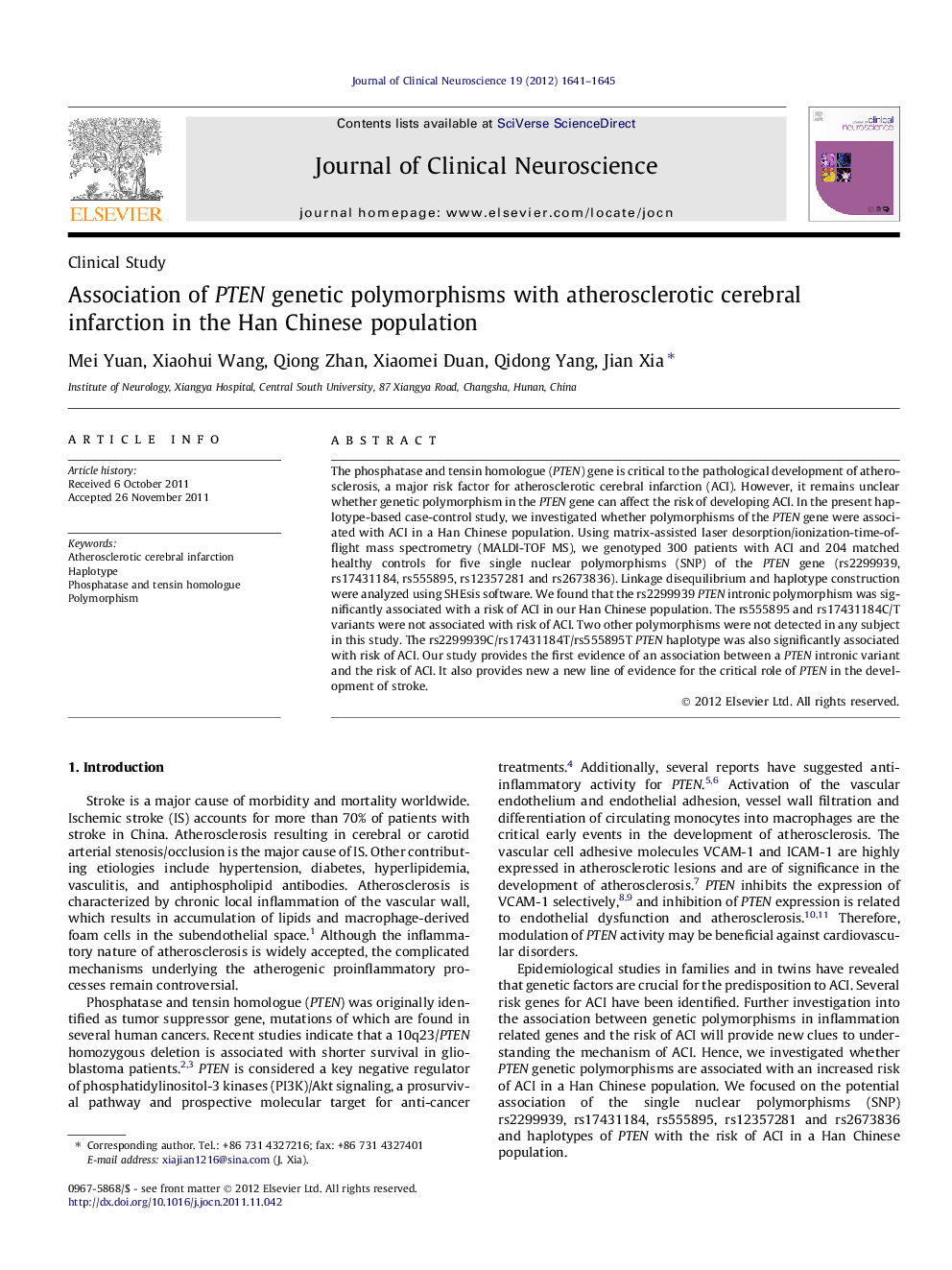| Article ID | Journal | Published Year | Pages | File Type |
|---|---|---|---|---|
| 3060089 | Journal of Clinical Neuroscience | 2012 | 5 Pages |
The phosphatase and tensin homologue (PTEN) gene is critical to the pathological development of atherosclerosis, a major risk factor for atherosclerotic cerebral infarction (ACI). However, it remains unclear whether genetic polymorphism in the PTEN gene can affect the risk of developing ACI. In the present haplotype-based case-control study, we investigated whether polymorphisms of the PTEN gene were associated with ACI in a Han Chinese population. Using matrix-assisted laser desorption/ionization-time-of-flight mass spectrometry (MALDI-TOF MS), we genotyped 300 patients with ACI and 204 matched healthy controls for five single nuclear polymorphisms (SNP) of the PTEN gene (rs2299939, rs17431184, rs555895, rs12357281 and rs2673836). Linkage disequilibrium and haplotype construction were analyzed using SHEsis software. We found that the rs2299939 PTEN intronic polymorphism was significantly associated with a risk of ACI in our Han Chinese population. The rs555895 and rs17431184C/T variants were not associated with risk of ACI. Two other polymorphisms were not detected in any subject in this study. The rs2299939C/rs17431184T/rs555895T PTEN haplotype was also significantly associated with risk of ACI. Our study provides the first evidence of an association between a PTEN intronic variant and the risk of ACI. It also provides new a new line of evidence for the critical role of PTEN in the development of stroke.
